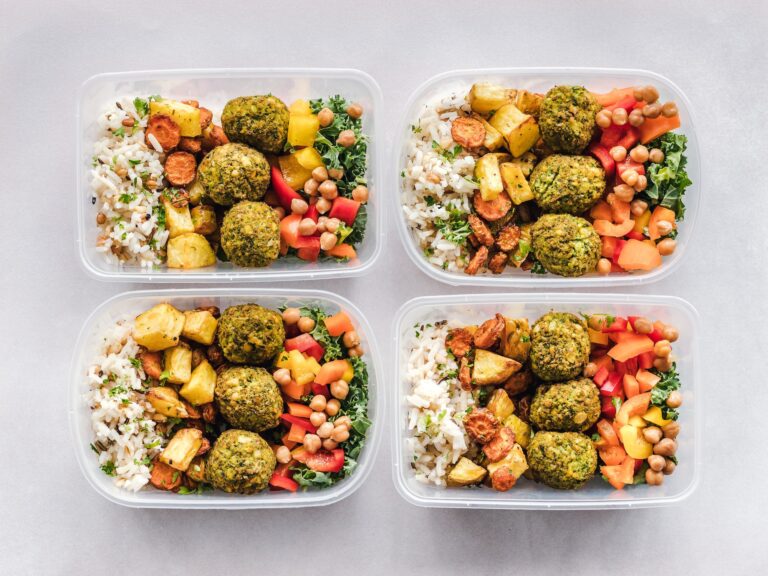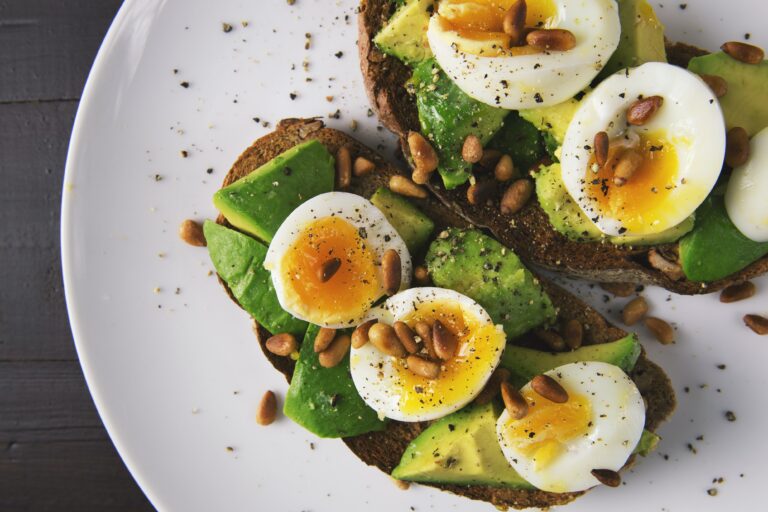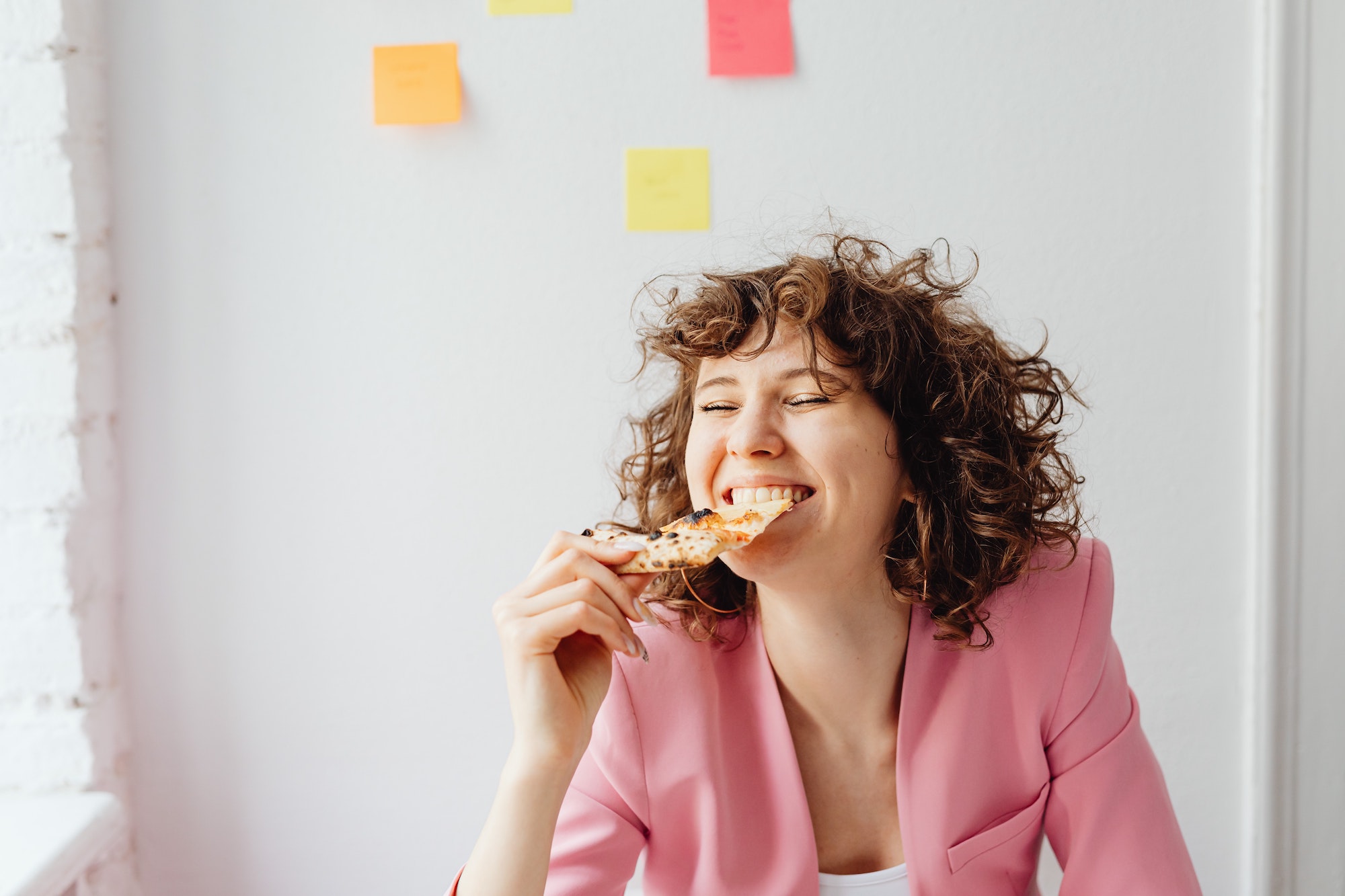Intuitive eating is your ticket to cultivating a healthy relationship with food and ditching the diet mentality once and for all. While most consumers accept the premise that fad diets do not work, it still makes it tough to embrace intuitive eating when wherever you look you are being influenced by weight stigma, that “thin = healthy” or “thin = happy”. Thus, it’s easy to stay stuck and obsessed with reaching the perfect body and believe that even a little dieting is perfectly “ok”.
Throughout the years of coaching clients on intuitive eating, I have found some sneaky myths about intuitive eating that individuals somehow, somewhere pick up along the way that simply aren’t true. These myths can interrupt one’s ability to fully embrace intuitive eating, or even initiate any engagement with intuitive eating at all.
Intuitive Eating Myth #1
"It Won't Help Me Lose Weight"
Literally the entire purpose of intuitive eating is to make peace with food, free yourself from chronic dieting, and rediscover the pleasures of eating. While not everyone who struggles with their relationship with food is looking to lose weight, the majority are.
Here are the 10 principles of intuitive eating according to IE pioneers Tribole and Resch:
- Reject the Diet Mentality
- Honor Your Hunger
- Make Peace with Food
- Challenge the Food Police
- Discover the Satisfaction Factor
- Feel Your Fullness
- Cope with Your Emotions with Kindness
- Respect Your Body
- Movement- Feel the Difference
- Honor Your Health with Gentle Nutrition
It would be a mistake to promote intuitive eating as a “weight loss” strategy as it would interfere with the process because intuitive eating is an internally based process. It is a weight-neutral model, meaning that the focus is not on body size but rather healing your relationship with food.
That being said however, when your mind is clear, body is relaxed, you are in tune with your body cues, emotions are being met healthfully, body is nurtured, you are absolutely in the BEST position emotionally and physiologically speaking to lose weight naturally! It is a beautiful bi-product for so many simply for doing the inner work.
Many believe that losing the external weight is what will make eating become pleasurable and will make them feel “in control” and that couldn’t be further from the truth. Once you become your own nutritional expert and cultivate a healthy relationship with food, mind, and your body, THAT is what will allow you to reach that feeling of “in control” you seek, NOT a lower weight.
Still think that dieting will help you lose weight sustainably? There is not a single long-term study that shows that weight-loss dieting is sustainable. Study after study, shows that dieting and food restriction for the purpose of weight loss leads to more weight gain. Yes, weight GAIN! Worse–the focus and preoccupation on weight leads to body dissatisfaction and weight stigma, which negatively impacts health.
I believe partially why individuals believe that intuitive eating will not support them in their weight loss goals has to deal with our next myth.
Intuitive Eating Myth #2
"I Can Eat Whatever I Want!"
I often hear, “How can I lose weight if I eat whatever I want?”. Eating whatever you want, as much as you want, whenever you feel like it distorts the premise of intuitive eating. Yes, give yourself permission to eat what pleases your palate without judgment, eat as much as you need to satisfy your body. But eating whenever you feel like it, without regard to hunger and fullness, won’t be a very loving experience. In fact, expect some physical discomfort. Your body’s satiety cues are a very important part of learning intuitive eating.
A 2006 study by Smith and Hawks took 350 male and female college students and evaluated the health related properties of foods they ate intuitively. They found that the students with the highest intuitive eating scores had a more diverse diet AND had a lower body mass index!
Intuitive eating embraces the fact that your primitive instincts, emotions, AND your rational brain all play a role in your eating decisions (versus just one). Intuitive eating teaches you to take into account all three of these to help you make the best eating decisions for yourself at any given moment. This ensures that your emotions of “I can eat whatever I want!” do not dominate as the primary grounds for your eating decisions.

Intuitive Eating Myth #3
"It Won't Give Me Structure, and I Need Structure!"
Intuitive eating is NOT anti-structure. When it comes to knowing WHEN you typically feel the hunger cues to eat, and what you feel you both WANT and NEED to eat at various times of the day, yes, it is very important that you stay proactive in HAVING foods available!
Your body has a bio nutritional circadian rhythm. Just like you have a sleep circadian rhythm and heart rhythm. Your body loves predictable patterns. As you ditch the diet mentality and actually begin to tune into your own natural hunger and fullness cues, you will find a natural eating pattern that appears often. Maybe that is three times a day, or four or five. Your natural eating rhythm becomes more predictable. “I typically feel like I need to eat around 9, then I’m ready again around 1pm” becomes a daily structure for you to know when to eat. To ensure you have food available, yes, you will need to have some groceries available for yourself, maybe do some meal preparation here and there, or at least carve out time to be resourceful and go get food at a nearby restaurant.
Point is, you do not drop planning ahead, you do not drop cooking, you do not drop having food available for yourself and just “wing it” with intuitive eating. Nurturing your body using intuitive eating principles is still a very proactive process. However, it is a proactive process with a positive energy behind it that doesn’t include spending a gazillion hours in the kitchen or feeling guilt, shame, or anxiety around food!
Intuitive Eating Myth #4
"I Will Lose Control Without Something To Follow"
Weight stigma, family influence, even our healthcare systems have conditioned us to distrust our bodies and their cues. So be compassionate with yourself if you currently feel this way. When you burn your bridges with dieting (I mean bomb them to heck and back sort of burning) you’ll forge yourself into intuitive eating principles and guidelines which will cultivate or remove obstacles to your body awareness.
It’s quite fascinating. When our clients say “YES!” and join our programs, essentially what they are doing is saying “NO MORE” to dieting. They made the decision. That bridge is now burned forever with dieting. Not surprisingly then, when they begin to go through early intuitive eating trainings, many are surprised at how quickly this intuitiveness returns! So perhaps you just haven’t quite burned that bridge yet. And when you’re ready to burn that bridge, be sure to have an intuitive eating resource ready and available for you to lean into so you don’t feel lost and unsupported.
Intuitive Eating Myth #5
"It's About Eating With Your Eyes Closed"
Doesn’t that just sound unappealing? Lol! Who wants to sit there in silence and chew with their eyes closed?! “I do!” said absolutely NO ONE. Tuning into your body, enjoying your food, finding that satisfaction factor is a fun and appealing process. No, you don’t have to close your eyes. That feels forced and mechanical, and that is what we are trying to get away from and instead enhance your entire eating experience!
It isn’t just what or how much you eat that allows you to feel 100% satisfied. The visual aspect and being genuinely awake and excited at your plate is absolutely critical. In fact, if your food looks ‘blah’, and you’re watching TV and not paying attention to anything on your plate at all, you will NOT enjoy your eating experience, and your body and brain will not feel satisfied. Instead of sending signals that you’ve had enough, it will send you signals to encourage you to keep eating! So please, eat with your eyes fully open. Enjoy carving out some time just for you to have a nourishing meal. You don’t have to become a meditative monk at the plate to enjoy your food intuitively.

Intuitive Eating Myth #6
"You Can't Eat If You're Not Hungry"
With the years of dieting history, it is easy to unintentionally throw a few principles of intuitive eating into the dieting mental ring. Yes, intuitive eating encourages you to honor your hunger cues and eat when you feel truly hungry and not wait until you are ravenous. So if you eat when you are not hungry, do you “fail”? Are you “mindless”? The short answer is NO, of course not! There is no “failing” with intuitive eating. You are a human being, you are an adult. There are times where your instincts, emotions, and rational brain all say to eat something mindfully, even if you are not hungry. That’s ok!
Where it becomes a concern is when you are continuously eating in a reactive way (mindlessly), where you check out using food, and often. A healthy relationship with food will still include some occasional eating when you are not hungry. It’s ok. Do not aim for perfection here. As long as more often than less often you are honoring your hunger cues and eating when you are hungry and not because of a trigger or unmet emotional need, you’re good! Especially as you begin to build your intuitive eating skills, it is important you be patient with yourself as you learn to cultivate or remove obstacles to body awareness.
Intuitive Eating Myth #7
"It's Not Science Based"
Ha! Here are a few myth busters:
24 studies published between 2006 and 2015 found that intuitive eating was associated with the benefits of:
- Greater body appreciation and satisfaction
- Positive emotional functioning
- Greater life satisfaction
- Unconditional self-regard and optimism
- Psychological hardiness
- Greater motivation to exercise when focus is on enjoyment (versus appearance)
2018, after an 8 year study following 1500 subjects, intuitive eating was associated with a lower odds of:
- Depressive symptoms
- Low self-esteem
- Body dissatisfaction
- Unhealthy weight control behaviors
- Extreme weight control behaviors
- Binge eating
A 2017 2 year study found that intuitive eating principles could effectively be taught in residential treatment settings for eating disorders, helping patients to learn to eat intuitively.
Today more than 125 published studies on intuitive eating have been conducted showing the benefits of intuitive eating and its positive influence on our psychological and physical well-being. A wonderful book to check out is Health at Every Size by Lindo Bacon. Packed with science about the truth behind the correlation between weight, health, intuitive eating, and dieting.
Intuitive Eating Myth #8
"You Don't Focus On Nutrition"
Come again? Of course you do! Principle number ten is Honor Your Health with Gentle Nutrition. This means, we don’t ignore the importance of what we know about food and its impact on our health and well-being. It simply stops playing the ONLY influence behind your decisions of when, what, and how much you eat on a daily basis.
I love talking nutrition with my clients. Most of the time I have to “de-fact” them a bit because there is so much overwhelming information that they have bottled up in their minds. Bringing it back to basic nutrition combined with your newly restored body awareness, joyful movement, and a clear mind and energy around food will only produce long-term success with peace around food!
Intuitive eating IS your doorway to diet freedom. Dieting hasn’t served you in the long game. It never will, even though it’s what you know and probably feel most comfortable with. Surround yourself with positive resources and mentors in your wants to improve your relationship with food with intuitive eating, we’re here to help!


